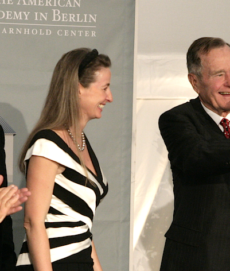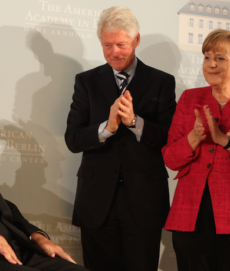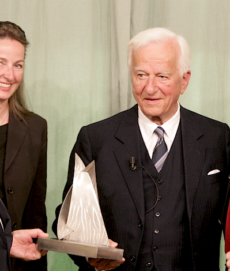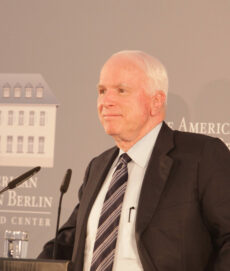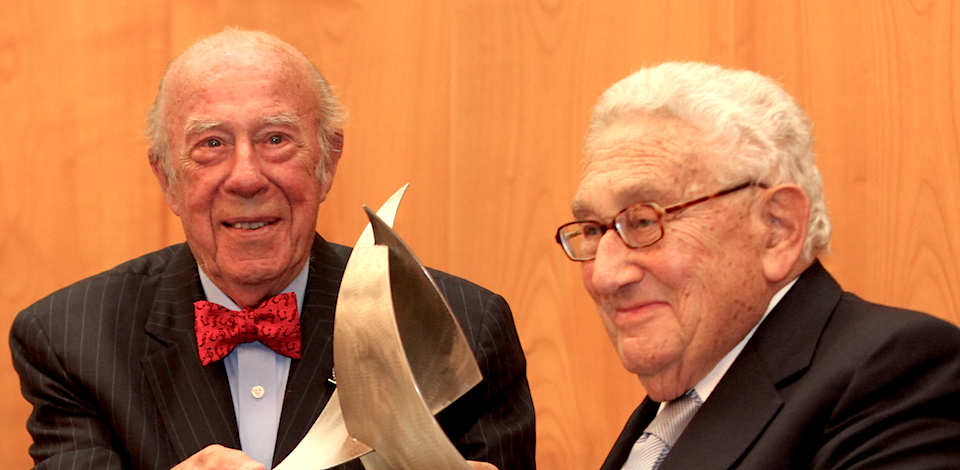
George P. Shultz
On the evening of May 24, 2012, the American Academy in Berlin welcomed over 300 distinguished guests at the 2012 Henry A. Kissinger Prize ceremony, held in the Weltsaal of the Federal Foreign Office, to celebrate the extraordinary lifetime achievements of United States former secretary of state George P. Shultz. The former MIT and University of Chicago economics professor and dean of Chicago’s Graduate School of Business entered political life during the Nixon Administration, serving as President Nixon’s secretary of labor from 1969 to 1970, and then as his treasury secretary, from 1972 to 1974. After working in the private sector during the Carter years, Shultz reentered politics as secretary of state under President Reagan, from 1982-89, the longest serving appointment since Dean Rusk, who served under both Presidents Kennedy and Johnson. It was during Shultz’s tenure as secretary of state that he helped to navigate the United States through several treacherous geopolitical shoals, among them Middle Eastern tensions subsequent the 1983 Marine-base bombing in Beirut; the “arms for hostages” deal with the Sandinistas, which Shultz opposed; the heated uproar with China over the status of Taiwan; and initially strained relations with several European leaders over how to constrain the Soviets during the last throes of Eastern bloc communism, which—to the credit of figures such as Ronald Reagan, George Bush, Helmut Kohl, Hans-Dietrich Genscher, and George P. Shultz himself—eventually led to the end of the Cold War and the reunification of Germany.
Among Secretary Shultz’s economic and domestic achievements was his expert contribution to the maneuvering of the global economy as it broke with the Bretton Woods system in the 1970s. His initiative in founding the Library Group after the 1973 oil crisis—comprised originally of the United States, United Kingdom, France, Japan, and West Germany—developed into the creation of the G-8 summits (Group of Eight, now including Italy, Canada, and Russia), which remain pivotal for eight of the world’s most powerful nations. As secretary of state, Shultz presided over the decisive period of East-West confrontation that culminated in the Intermediate-Range Nuclear Forces Treaty of 1987 and to a restoration of trust between the two superpowers. Between his Cabinet appointments, Shultz worked as an executive at the largest construction and engineering company in the United States, Bechtel, which helped to build the Hoover Dam and the Channel Tunnel. Since leaving public office, in 1989, Secretary Shultz has remained an important force in the formulation of public and foreign policy in the United States and across the globe. His work toward global nuclear disarmament, along with Henry Kissinger, Sam Nunn, and William Perry, led to the creation of NTI, the Nuclear Threat Initiative, whose work has lobbied heads of state and other officials for drastic reductions in nuclear arms.
Shultz is currently a Distinguished Fellow at the Hoover Institution, at Stanford University, and a policy advisor to the Republican Party.

